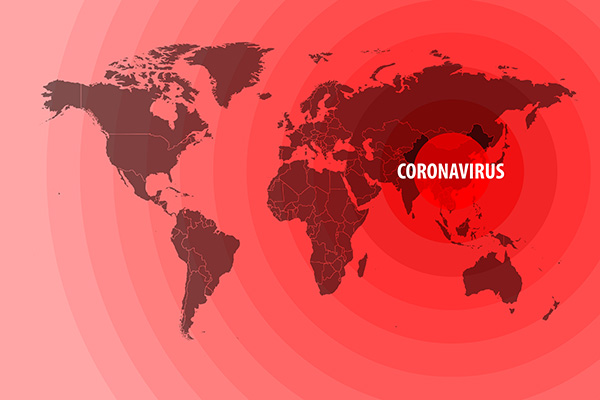Manufacturers are beginning to panic.
Two weeks ago, I wrote about the Coronavirus with, at that point 100 deaths, and the beginning of shipping and logistics issues with all products coming out of China. Since then, the crisis has geometrically progressed and nearly 1000 people have died, and 40,000 infected people are being treated. The infection has spread worldwide, to include Silicon Valley where I live.
No vaccine is currently available.
In parallel with the spread of the virus, Chinese New Year celebrations across the globe were banned or subdued as governments recommended against public gatherings. Chinese factory closures for the holiday were extended until today, Feb 10 or longer, depending on the perceived threat. Airlines including American, United, and Delta have suspended flights. Restrictions on ship dockings are rising.
Supply Chains within Supply Chains within Supply Chains
Panic is beginning to rise in global supply chains. Suddenly, all supply chains seem vulnerable because so many Chinese supply chains within supply chains within supply chains rely on each other for parts and raw materials. That tiny valve that is inside a motor that you are sourcing for your US-made product is made in China. So are the rare earth elements you require to manufacture magnets and electronics…and on and on. Purchasing departments declaring that they have alternate non-Chinese suppliers, may be naïve in thinking that their domestic suppliers don't rely on parts from China and that shortages are imminent.
With no parts being received from China, a Hyundai manufacturing plant in Korea had to suspend operations. This is one of the first to declare an interruption in manufacturing and we are likely to see many more over the coming weeks. In an effort to deploy Lean Manufacturing techniques, manufacturer's inventories are thin and many parts arrive just-in-time. The automotive sector is particularly vulnerable because Wuhan and Hubei province are the auto parts and auto production region of China.
Closures of factories and suspension of cargo movements
Several of my clients are busy trying to figure out how to get shipments out of China. Airlines and air cargo operations that have been on a restricted holiday schedule, are now completely suspended. Many of the factories and logistics warehouses are on extended leave, not only in Wuhan, but also Guangzhou, Shenzhen, and Shanghai. Hong Kong, with recent protest problems of its own, is also restricting incoming people and shipments from China and outbound flight operations. Some factories are being ordered to stay shut. Workers are afraid to go back to work even if their factory is open.
Some companies are trying to source parts to stock up on inventory, to try to outlast this critical virus period. This in turn, will eventually cause shortages of all kinds as companies pay premium prices and hoard parts.
Even if some parts start to trickle out of China, enhanced screening for the virus at seaports, airports, and all China boarder crossings are likely to cause long delays. How long before all the factories come back to life and global logistics are running smoothly is anybody's guess.
Plan B and Plan C
I am hoping that this round of risk in your global supply chain, is yet another incentive to have your alternate plans developed and ready to go. If you are ready to execute your Plan B and your competitors are not, you have the competitive advantage. If they are ready and you are not, your company loses.
It's time to worry and plan for disasters like the Coronavirus, trade wars, and global warning. They will all affect your supply chains. If you are already working on alternate plans, review them again and add detail and then give them a test. Make sure all your alternate plans will work.
We have been helping companies with their global tariff strategies because of the trade war and the resultant economic emergency. The Coronavirus is causing a different kind of economic crisis that is even more urgent.
We are being told not to panic because this virus so far, has resulted in far fewer deaths than the flu. But it is time for businesses to raise the threat level for their supply chains and take action now.
SC
MR


Latest Supply Chain News
- How CPG brands can deliver on supplier diversity promises
- How S&OP provides the answer to in-demand products
- AI, virtual reality is bringing experiential learning into the modern age
- Humanoid robots’ place in an intralogistics smart robot strategy
- Tips for CIOs to overcome technology talent acquisition troubles
- More News
Latest Podcast

 Explore
Explore
Business Management News
- How CPG brands can deliver on supplier diversity promises
- How S&OP provides the answer to in-demand products
- AI, virtual reality is bringing experiential learning into the modern age
- Tips for CIOs to overcome technology talent acquisition troubles
- There is still work to do to achieve supply chain stability
- Blooming success: The vital role of S&OE in nurturing global supply chains
- More Business Management
Latest Business Management Resources

Subscribe

Supply Chain Management Review delivers the best industry content.

Editors’ Picks




